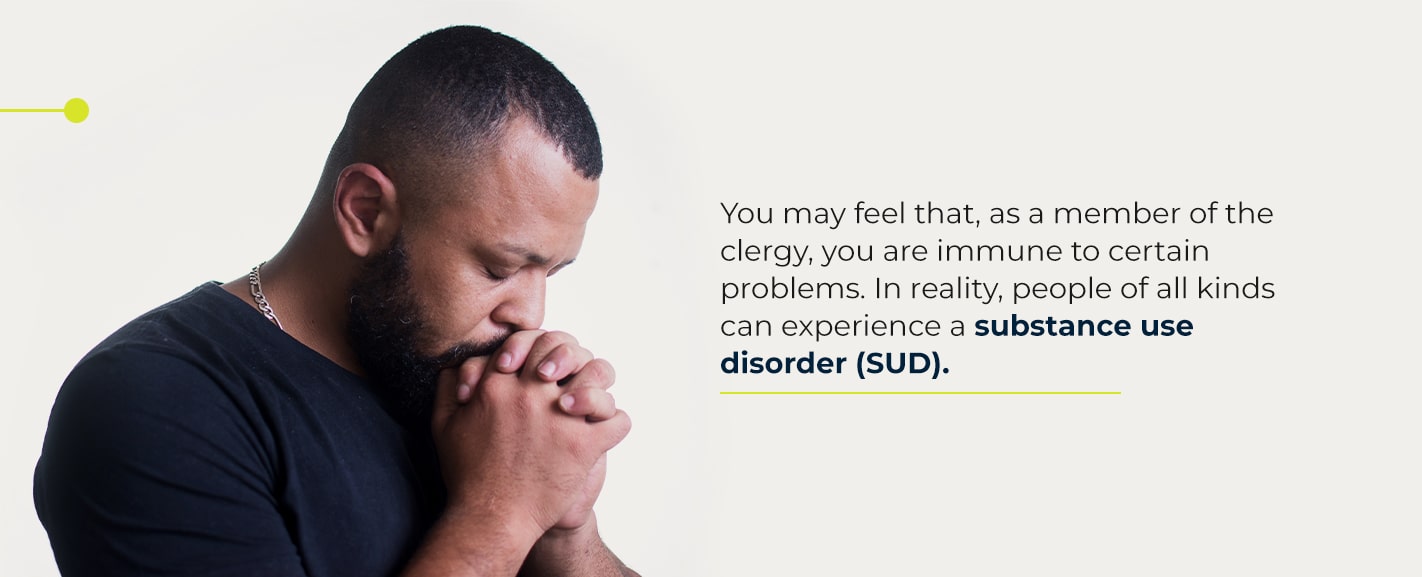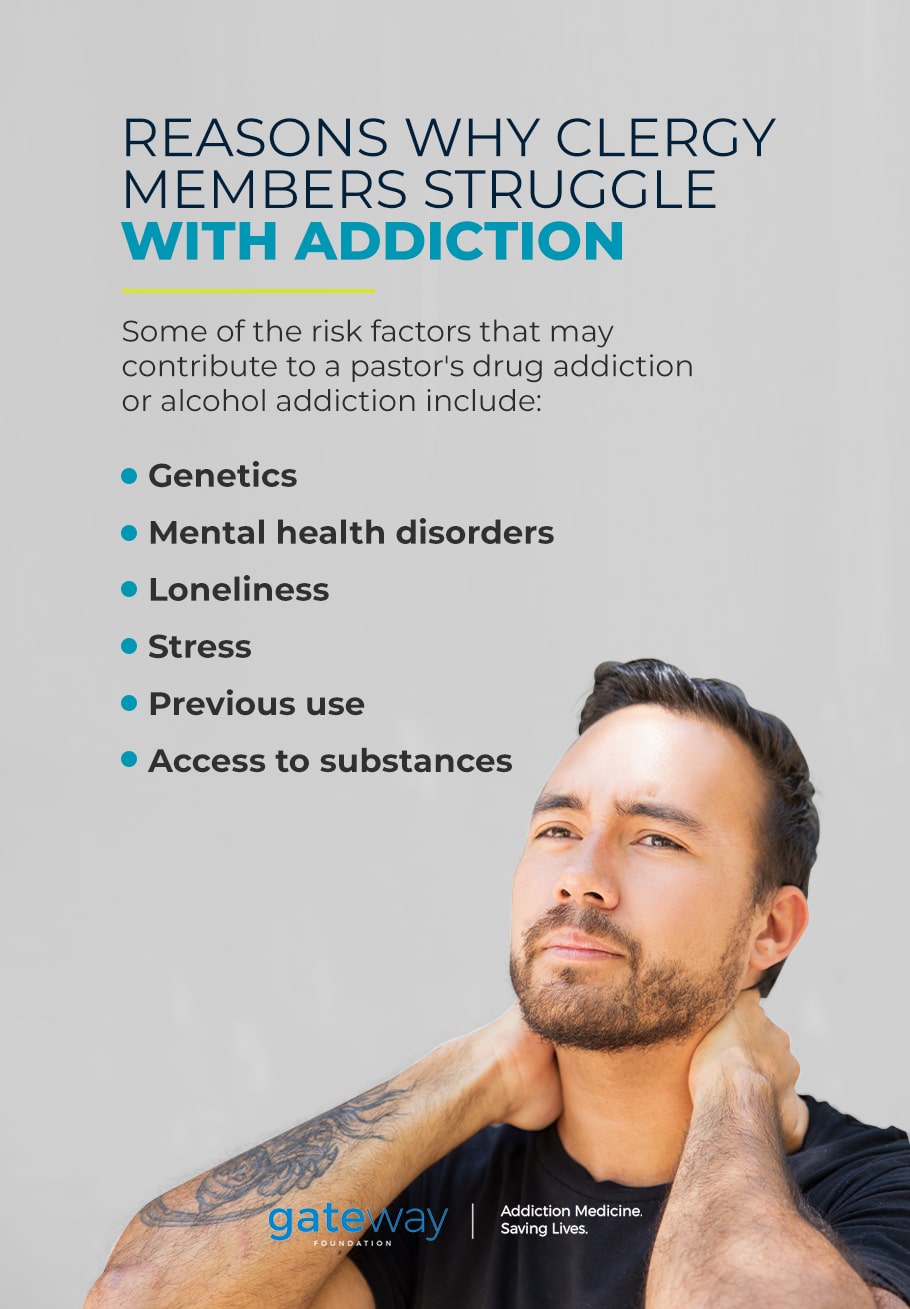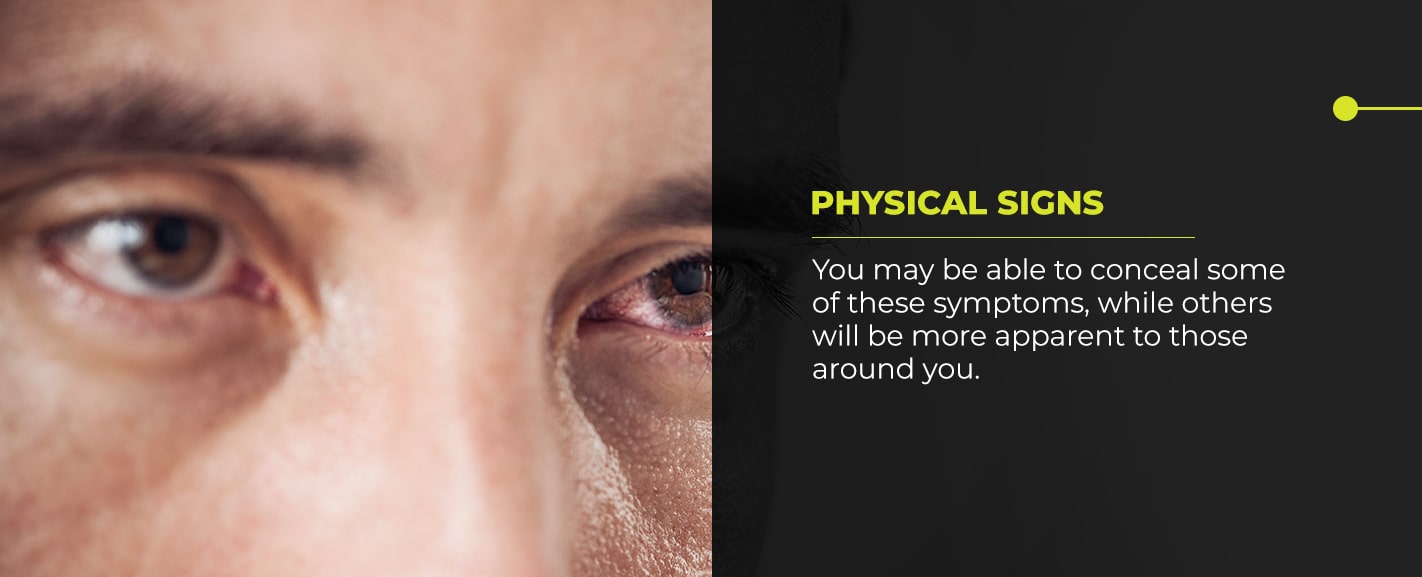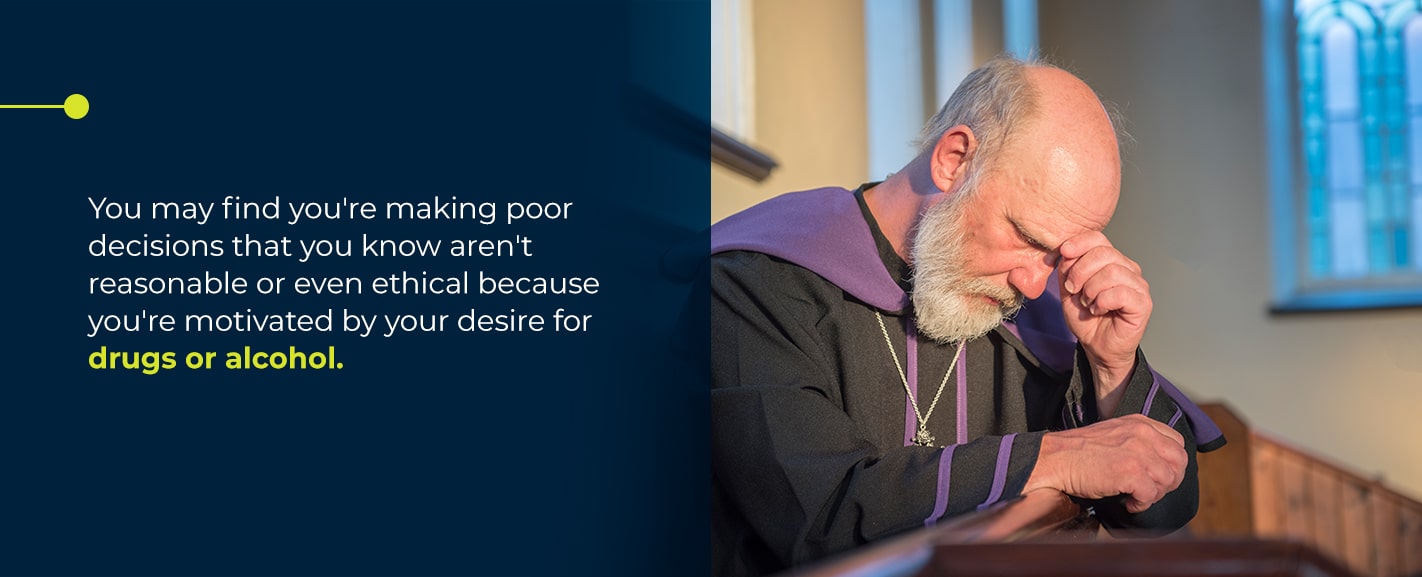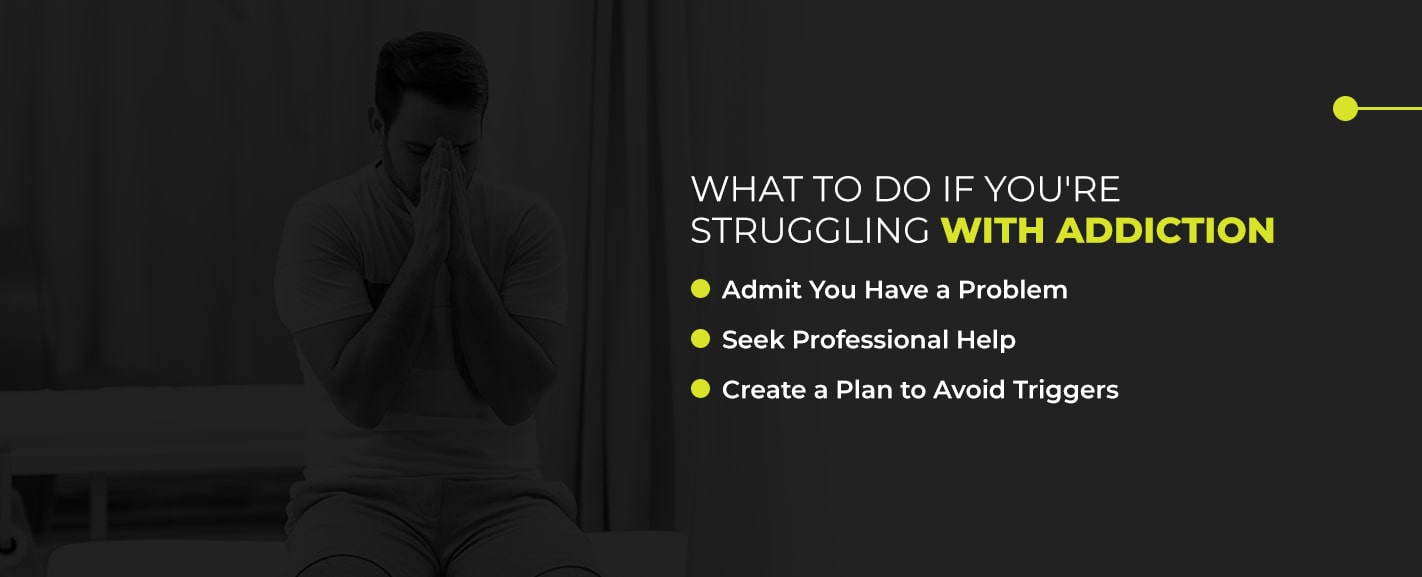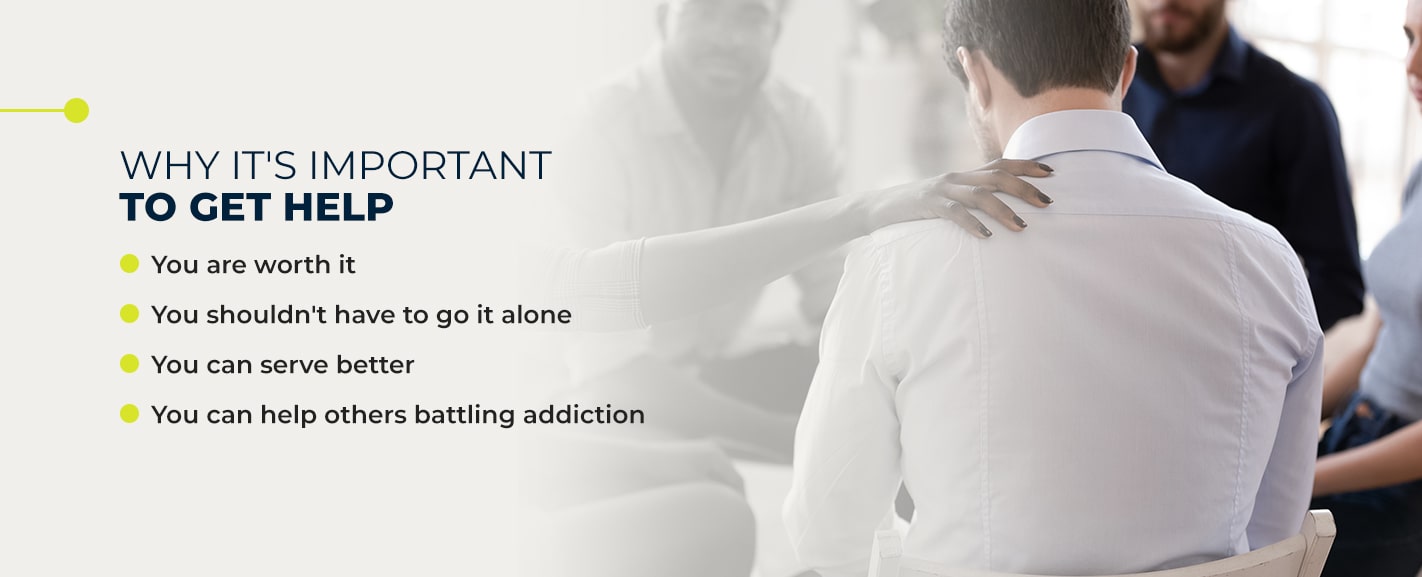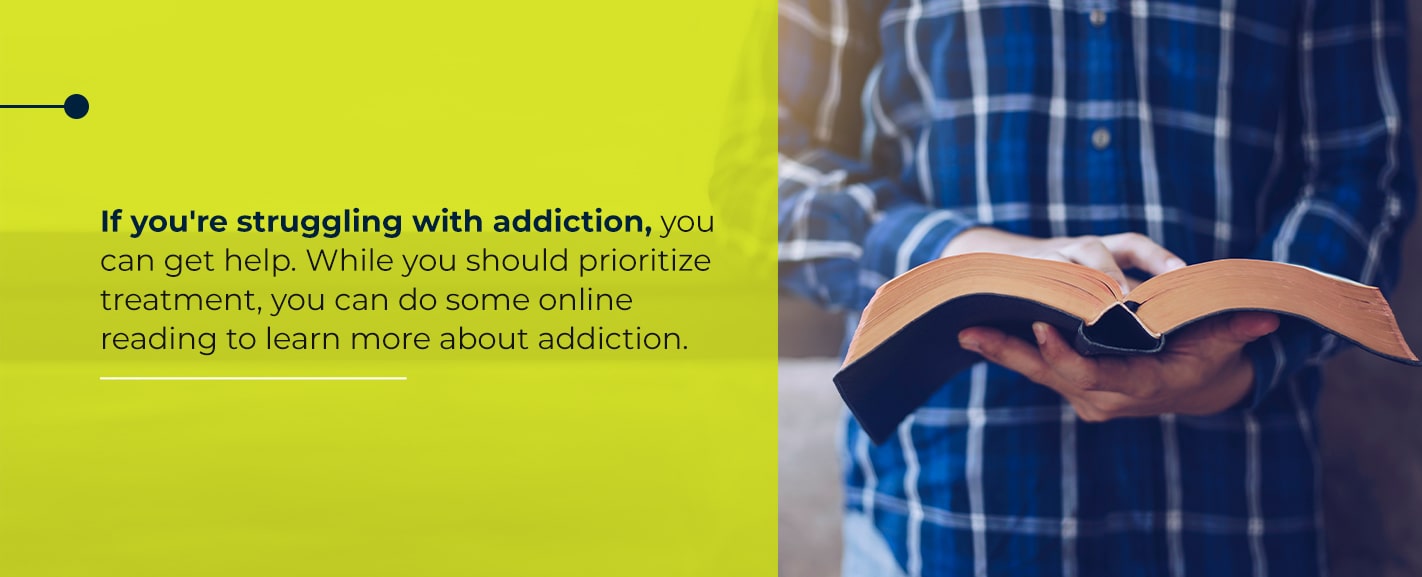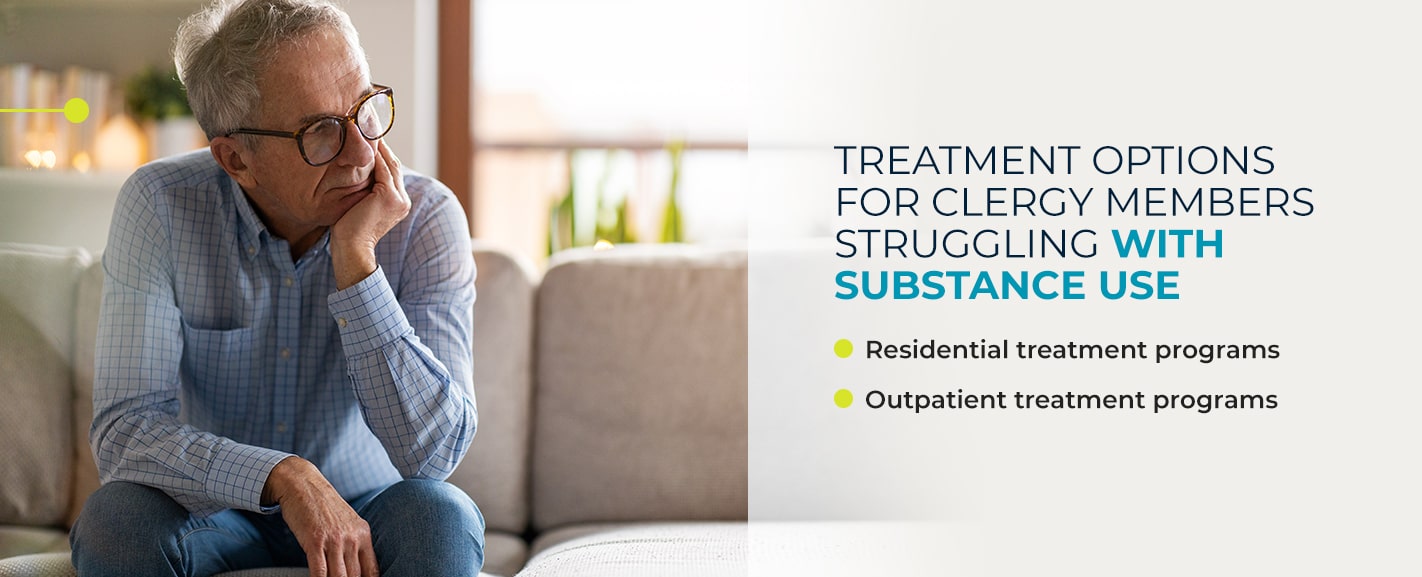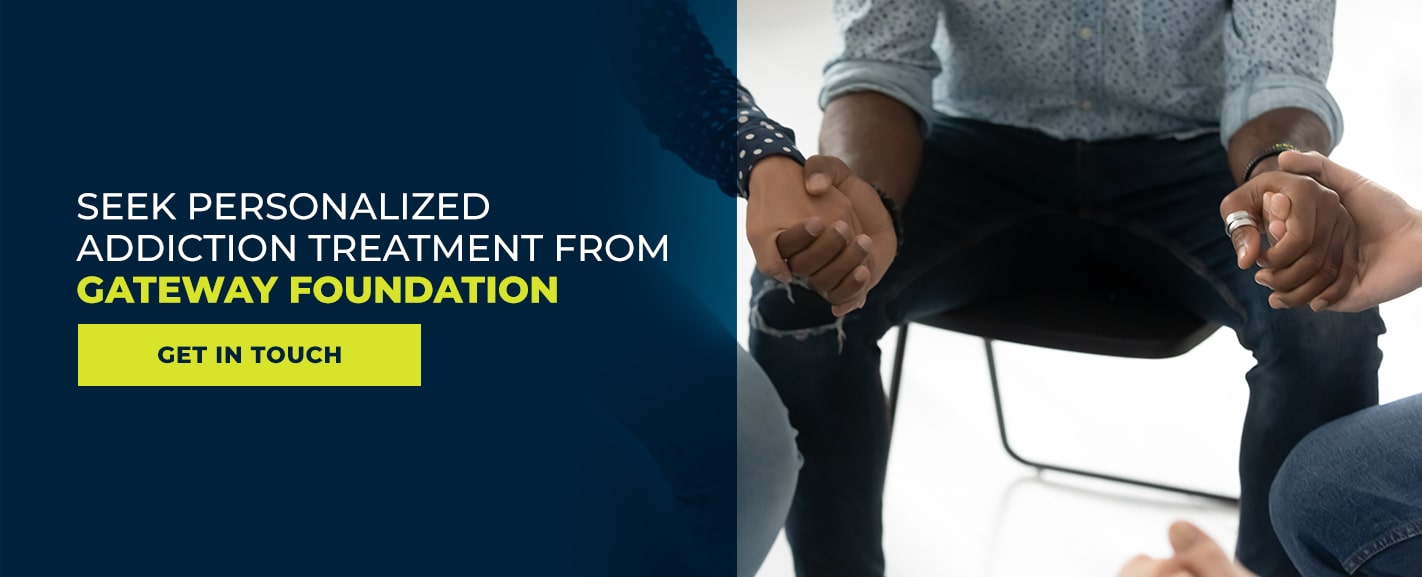- Dec 31
- AddictionAddiction TherapyTreatment
When the average person thinks of pastors and addiction, they may picture a pastor counseling a person who is trying to get sober. But what if the clergy member was the one in the throes of addiction? Substance use is an issue that affects people from all walks of life, and that means substance misuse in a clergy is a real issue. You are not alone.
- Can Clergy Members Struggle With Addiction?
- Reasons Why Clergy Members Struggle With Addiction
- Signs You Might Be Struggling With Addiction
- What to Do if You’re Struggling With Addiction
- Why It’s Important to Get Help
- Treatment Options for Clergy Members Struggling With Substance Use
- Seek Personalized Addiction Treatment From Gateway Foundation
Learn more about how addiction can impact spiritual leaders and what you can do to move forward with your life. Addiction will always remain part of your history and your testimony, but you can begin walking in freedom and sobriety.
Can Clergy Members Struggle With Addiction?
You may feel that, as a member of the clergy, you are immune to certain problems. In reality, people of all kinds can experience a substance use disorder (SUD). That includes religious people and even spiritual leaders. Everyone has personal struggles, and for some, those struggles may include some type of addiction.
Clergy members may feel a unique level of pressure to avoid addiction, and in turn, may feel a unique level of shame associated with experiencing addiction. The stigma surrounding substance use can motivate ministers to try to deal with addiction on their own or, at best, seek treatment discreetly. Because of this secrecy, each clergy member who struggles with addiction may feel like they’re the only one. But that isn’t the case — addiction in pastors may be more common than you realize.
Though we don’t have data on this group specifically, we do know that SUDs affect many people. Every year, according to the Substance Abuse and Mental Health Services Administration (SAMHSA), around 2% or more of Americans aged 26 and above experience an illicit drug use disorder, and 5% or more experience an alcohol use disorder. That’s millions of adults struggling with addiction. According to the Centers for Disease Control and Prevention, in one month sampled in 2018, 11.7% of people aged 12 and over had used illicit drugs.
Reasons Why Clergy Members Struggle With Addiction
There are many reasons why a minister may start using illicit substances or misusing alcohol. Some of the risk factors that may contribute to a pastor’s drug addiction or alcohol addiction include:
- Genetics: Genetics play a key role in predisposing a person to addiction. According to the National Institute on Drug Abuse, a person’s genetic makeup can account for as much as half of their risk of becoming addicted to drugs, nicotine or alcohol. If you have a family history of addiction, you may be more likely to experience addiction yourself. You may notice you have an “addictive personality” that makes moderation difficult for you.
- Mental health disorders: Another risk factor is mental health disorders — something 23% of pastors say they’ve dealt with. Mental health issues might include depression, anxiety, post-traumatic stress disorder (PTSD) and attention deficit hyperactivity disorder (ADHD). Mental health conditions may drive a person to cope by self-medicating. In some cases, this may start with proper prescription drug use to treat their condition. But if the patient begins to misuse their prescription drugs or turns to other substances, this can quickly turn into a substance use disorder.
- Loneliness: Isolation and loneliness are risk factors that can trigger substance use or relapse in a person with a history of addiction. You may think, considering all the time clergy members spend serving their congregants or parishioners, they would never have a chance to feel lonely. However, loneliness can be a real problem for pastors since they may not have someone they feel they can turn to with their troubles. Isolation can be a problem for unmarried clergy who live alone, especially.
- Stress: Stress is a risk factor that just about anyone can identify with. We all experience stress in our daily lives, but stress can be an especially heavy burden on ministers. Worries about the church as a whole, such as finances or internal conflicts, along with worries about individual church members — their sicknesses, relationships and more — can all cause prolonged stress. This stress can eventually cause mental and emotional exhaustion, often called burnout. Some pastors may cope with this stress in unhealthy ways, including drug or alcohol misuse.
- Previous use: Many pastors have impressive testimonies of how far they’ve come along their spiritual journey. For some, their past includes substance use of some form. Whether it’s been a year or decades since you misused drugs or alcohol, you’ll always be at a higher risk of using again compared to someone who has never experienced an SUD. In fact, if you used drugs in your youth, it affected how your brain finished developing, and as an adult, you remain at a higher risk of becoming addicted again.
- Access to substances: Especially if you have other risk factors adding to your vulnerability, access to substances can make it more likely that you misuse those substances. Maybe you were prescribed pain medication at one point, and you’ve developed an addiction to this medication, which you’re now using recreationally. Or maybe you tried to help out someone who struggles with addiction, and they brought drugs or alcohol into your home, tempting you to use again.
All of these risk factors and more can contribute to clergy substance misuse. For some, it may not be clear how or why the addiction began. It may be rooted in struggles that started many years ago. For example, memories of a difficult childhood can motivate you to look for coping mechanisms. Drug or alcohol misuse is an unhealthy coping mechanism that only adds to a person’s difficulties. In the moment, it may seem to make you feel better, causing a destructive cycle that is difficult to break.
Signs You Might Be Struggling With Addiction
If you’re concerned you or a friend in the pastorate is experiencing some form of substance misuse, there are signs of clergy substance use you can look for. In fact, the signs of a pastor’s drug addiction or alcohol addiction look like the signs of anyone else’s addiction. If some of the following statements are true for you, then you may have developed an SUD:
- You regularly use the substance, possibly daily or multiple times per day.
- Your desire for drugs or alcohol crowds out other thoughts.
- You’ve built up a tolerance, so you now need more of the substance to achieve the same feeling.
- You go to great lengths or dedicate a lot of time to ensure you have access to the substance.
- Your substance use has interfered with your personal responsibilities as a clergy member or relationships.
- You have engaged in risky behavior that you wouldn’t normally engage in.
- You’ve been dishonest with others about your substance use.
- You’ve tried to stop using the substance but have felt powerless to do so.
- When you try to quit, you experience withdrawal symptoms.
You can take a self-test on our website that can also help you determine if you have a drug or alcohol addiction. Let’s look deeper into how some common signs and symptoms of an SUD can manifest in a minister’s life.
Physical Signs
Some signs of clergy drug addiction or alcohol addiction are physical. You may be able to conceal some of these symptoms, while others will be more apparent to those around you. Some physical symptoms to watch out for in yourself or in another person who you fear may be struggling with addiction include:
- Bloodshot eyes
- Sudden weight loss
- Disrupted sleep patterns
- Changes in complexion
- Poor personal hygiene
Behavioral Signs
You may find you’ve started acted differently. Or maybe you haven’t noticed the changes but a friend or relative has pointed them out to you. See if any of these behavioral signs of substance use in pastors are true for you:
- Withdrawal from friends and family
- Increasing secretive behavior
- Ignoring everyday responsibilities
- Financial mismanagement
Psychological Signs
You may also experience psychological symptoms as the result of an addiction. Some of these issues may feel like inner turmoil that you hide from others, but your changes in mood and attitude may be apparent to those closest to you. These psychological issues include:
- Depression
- Anxiety
- Low self-esteem
- Lack of motivation
- Irritability and mood swings
Occupational Signs
Your SUD may have consequences for your occupation as a religious leader. For example, your addiction may consume your time and thoughts, leaving less room for spiritual disciplines, sermon preparation or other tasks essential to your calling. Maybe you’ve even missed a counseling session, a home visit or a meeting because you were intoxicated or hungover.
You may also find you’re making poor decisions that you know aren’t reasonable or even ethical because you’re motivated by your desire for drugs or alcohol. One pastor candidly shared about how, as a Christian camp director, he used the camp’s credit card to purchase thousands of prescription pain pills online. He knew this illegal activity was wrong, but while gripped by addiction, his need for those pills overshadowed his desire to do the right thing.
These sorts of deficiencies and decisions resulting from drug or alcohol misuse can force a person to step down from their position in ministry altogether. But, in some cases, it may simply be the wake-up call needed to seek help and find restoration.
What to Do if You’re Struggling With Addiction
If you think you may be addicted to drugs or alcohol, there are a few crucial steps to take to better your life.
1. Admit You Have a Problem
The idea that admitting you have a problem is always the first step to change isn’t just a cliché — it holds a lot of truth. When an addiction is concealed, it can continue to spiral out of control with no hope of improvement.
To move forward, you must shed light on the issue, admitting you have a problem both to yourself and to others. This step doesn’t mean you need to publicly announce your struggle with substance use. The degree to which you share your personal struggle with others is up to you. But you should at least involve those closest to you so they can support you on your journey to recovery.
2. Seek Professional Help
After acknowledging you’re dealing with an addiction, it’s time to get help. You may be tempted to try quitting and recovering on your own, but trying to beat addiction by yourself is generally a bad idea. There are some key reasons experts recommend you rely on professional help in treating your addiction, including:
- Medical supervision: As you deprive yourself of the substances you’ve grown to depend on, you can experience very serious withdrawal symptoms. In some cases, you could even experience serious medical complications like seizures. Those symptoms are why it’s best to have professional medical supervision to manage your withdrawal.
- Expert support: In giving counsel to others, you’ve seen how easy it can be to give advice that seems clear to you but did not occur to the person in the midst of the situation. A person dealing with addiction can benefit from the insights that a caring, objective third party has to give — especially when this person or medical team is knowledgeable about addiction and recovery.
- Community: By joining a support group or entering an addiction treatment program, you can form friendships with others who understand firsthand what you’re going through. You may remain friends with others you met during this time of recovery and continue to encourage each other in the future on your path of sobriety. You can also join an alumni community once you’ve achieved sobriety to maintain your recovery.
3. Create a Plan to Avoid Triggers
As you’re recovering, you need a plan to help you avoid the circumstances that could trigger a relapse. This plan might include distancing yourself from certain people who are in active addiction or avoiding certain social situations where you know you’ll be offered alcohol. It can also mean actively avoiding isolation and having continuing connection points with an accountability partner.
Why It’s Important to Get Help
You may be tempted to forgo getting professional help. After all, this decision may mean admitting to others that you’re experiencing addiction and treating the addiction with the seriousness it deserves rather than downplaying it. However, there are some critical reasons why you should get the help you need:
- You are worth it: In serving others, you may fail to practice proper self-care. But your personal well-being should not be put on the back burner. You deserve the help you need to properly treat your addiction and enjoy a happier, more fulfilling life.
- You shouldn’t have to go it alone: As we looked at above, there are some very real benefits to seeking professional help for your recovery. You shouldn’t have to struggle on your own and depend on only yourself to take the steps needed to recover. Get the help you need because you deserve it.
- You can serve better: When you’re doing better and enjoying some freedom over your addiction, you’ll find that you’re much better positioned to serve others. You’ll no longer be distracted by your addiction or the guilt it induced. Instead, you can give the time and attention needed to be the best clergy member you can be. Your personal relationships may also improve.
- You can help others battling addiction: Clergy who have experienced substance use are uniquely equipped to help others with this same struggle. In the early days of your recovery, you must focus only on your own sobriety. Down the road, you may be able to use your experience to start special ministries or provide counseling for people in your community dealing with addiction.
Resources for Clergy Members Struggling With Addiction
If you’re struggling with addiction, you can get help. While you should prioritize treatment, you can do some online reading to learn more about addiction. On our Addiction Blog, you’ll find many articles dealing with specific aspects of addiction. You can also consult other sources online, such as the National Institute on Drug Abuse website or the National Institute on Alcohol Abuse and Alcoholism site.
You may also be able to find resources within your faith community to help you understand your drug or alcohol misuse from a spiritual perspective. These resources can complement the secular sources you consult. The Fellowship of Recovering Lutheran Clergy started The Center of Addiction and Faith, which includes resources on their website and hosts an annual conference to help educate clergy and others within the faith community about addiction.
Treatment Options for Clergy Members Struggling With Substance Use
The most important resource to prioritize is a treatment program. Undergoing treatment is a crucial step that can help you safely transition to a sober life. There are two types of clergy substance misuse treatment resources to consider:
- Residential treatment programs: In an inpatient, or residential, program, you live at the treatment center during your treatment period, receiving around-the-clock care and support. In an inpatient program, you can set aside distractions and focus completely on your recovery, experiencing a hard reset to help you succeed when you leave. Note that, because you’ll be away from the duties of your daily life, you’ll likely need to share this information with others, possibly including your congregation.
- Outpatient treatment programs: In an outpatient treatment program, you receive treatment at the rehabilitation center then return home. These programs take up less of your time, giving you more flexibility to continue aspects of your daily routine. This format also means you can undergo care more discreetly if that’s important to you. Outpatient care is a more affordable treatment option, as well. Note that outpatient programs may not be ideal for some clergy members if they need that extra 24/7 support in a treatment facility.
Seek Personalized Addiction Treatment From Gateway Foundation
Addiction can wreak havoc in a minister’s life, as it can in anyone’s life, but there is hope. Just as addiction is no respecter of persons, so is recovery — physical and spiritual rehabilitation for pastors who misuse drugs or alcohol is available, and it can be part of your story. You can begin the path to recovery and restoration today. And whatever treatment option you choose, faith can play a key role in your recovery.
At Gateway Foundation, we will support you in precisely the ways you need to enjoy a better quality of life. In some cases, that means addressing certain mental health issues alongside addiction. We take an evidence-based, science-driven and person-centered approach to addiction treatment. We offer personalized care made for you — not a one-size-fits-all treatment option. Learn more about our programs and services, and contact us if you have questions or are ready to begin this new chapter in your life.

